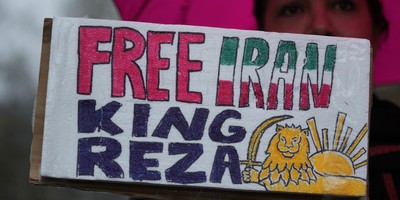You'd never guess it listening to Obama or Hillary talk, but Americans are among the happiest people on Earth.
We are also one of only two nations in human history to make "happiness" an explicit core of our national agenda, as economist Arthur C. Brooks points out in his new book "Gross National Happiness." Americans did it in 1776, with a Declaration of Independence that made three rights self-evident gifts from the Creator: "Life, liberty and the pursuit of happiness."
It took 194 years for the only other nation ever to prioritize happiness as a goal, the tiny Buddhist monarchical dictatorship of Bhutan.
But what makes people happy? Brooks, a professor at Syracuse University, chews through the data. Twin studies suggest that about half of our "baseline happiness" is genetic, which leaves us with a glass half-full of things people can do or believe that will make them feel better about their lives.
For Brooks, one of the great surprises was the enormous "happiness gap" between political liberals and political conservatives that has persisted over the last 35 years. Self-designated conservatives are twice as likely as liberals to say they are "very happy" (44 percent to 25 percent), and only half as likely to say they are "not too happy" (9 percent versus 18 percent). Conservatives are also only half as likely as liberals to say that "at times, I think I am no good at all."
Of course, conservatives are more likely to be religious and to be married, both important contributors to happiness. Religious liberals, for example, are happier than secular liberals, but neither group is nearly as happy as people who say that they are both religious and conservative. Fifty percent of religious conservatives are very happy and just 5 percent are not too happy.
But even if you correct for differences of religion, marriage, income, age, education and race, the conservative is 10 percentage points more likely than the liberal to report being very happy.
Recommended
Why? Brooks emphasizes one important variable: personal efficacy. He points to an experiment in which nursing home residents were given two simple freedoms: They could decide which night would be "movie night," and they could choose and care for the plants on their floor. Even such tiny differences in personal choices had huge effects on the happiness of these senior citizens. Conservatives are more likely to believe that individuals can better themselves by their own actions, for example, than liberals.
Freedom, he says, makes people happier. Perceiving oneself or others to be victims of circumstances we cannot control is a recipe for national unhappiness.
But in a seeming paradox, Brooks also points out that another opposite factor also influences personal happiness: "moral constraint." Moral traditionalists -- who accept that right and wrong impose strong constraints on their own actions -- are far happier than those who believe anything goes. Even after controlling for age, income, education, race and marital status, people who believe in abortion on demand are 9 percentage points less likely to be very happy than those who think abortion is at least sometimes wrong. "Premarital sex, drug use, you name it -- the moral traditionalists have it all over the moral modernists when it comes to happiness," concludes Brooks.
Two things (and this is my reading of Brooks' data) make people happy: freedom and community. People are happier when they feel their actions and choices matter -- to themselves and to other people. Conservatives are more likely to feel connected to projects larger than themselves, such as God, family, religion and morality. Of course many liberals, especially religious liberals, share this sense of connection to larger goals and feel efficacious in bringing them about. (Hence there are about 17 million very happy liberals in this country, Brooks estimates).
Hell is not other people. Hell is that horrible place where nothing you do can matter anymore.

























Join the conversation as a VIP Member